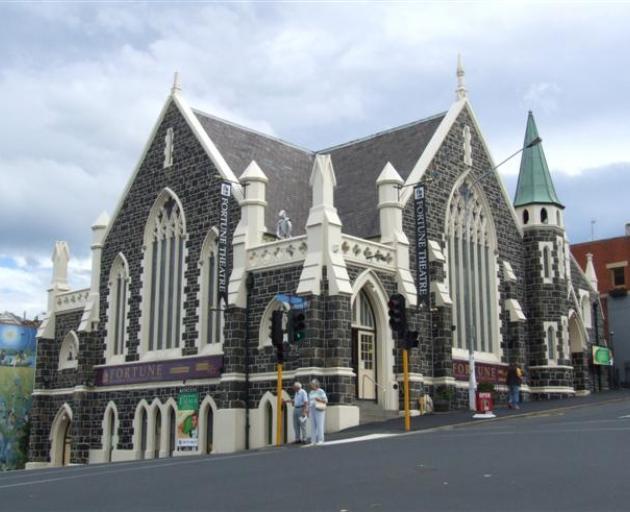
As Down in Edin's Caroline Davies eloquently put it, we need such places to offer a mirror on our humanity. Places to sit in safe and companionable darkness, while skilled actors invite us to learn about ourselves. Places that make us feel alive.
Art does that. It offers place and space to learn more about ourselves and our humanity. Art also does more than that. It provides moments that allow us to experience something beyond ourselves and even our humanity. Transcendence.
As the news of the Fortune Theatre was unfolding, a series of lectures was being held in another theatre: the Hutton. Over six evenings, eminent theologian the Rev Prof Jeremy Begbie presented the 2018 Thomas Burns Memorial Lecture Series. These public lectures explored the topic of transcendence and the arts, asking "How might the arts bear witness to divine transcendence?".
This is a question that pushes us to explore philosophy and theology; cultural studies and aesthetics. It is heady stuff that one could spend a lifetime attempting to understand.
But, significantly, Begbie did not simply invite us into our "heads": to ponder deeply this question of how God's transcendence might be enjoyed through art. As well as skilfully presenting words and ideas, Begbie invited us to experience transcendence for ourselves.
Art from Caravaggio, Rembrandt, Marlena Schultz and more. Poetry. And music.
An accomplished musician, Begbie "let us in the sound" by playing both recordings and live piano. He presented and illuminated tiny phrases of music, and entire movements.
In doing so - offering art, poetry and music - Begbie skilfully helped us make sense of what we were enjoying and responding to: the transcendent.
For as philosopher Charles Taylor notes, despite modernity's reductionist tendencies, our secular age is "haunted" by transcendence. While some argue that everything can be explained away, most of us, like Taylor, know there is something more. Something mysterious. Something that human language cannot capture. Something that does not need to be fully comprehensible, in order to be real.
Experiencing the arts offers one way to move beyond modernity's bleak mechanised view of the universe. The arts have the potential to re-enchant our world.
For Begbie, this re-enchantment both witnesses to, and is because of, God. God, who is more than we can ever understand or imagine. But this "more-ness" does not mean that God is distant or disconnected. Rather, God's very being is relationship. Christian theology speaks of God in three "Persons", a Trinity forever expressing itself in self-giving love. And remarkably, God invites and includes human beings - us - within this loving, mysterious, relationship.
These are heady ideas: difficult to grasp. This is precisely why the arts: music, visual arts, theatre, are so important. Such wonders (along with #dunnerstunner sunrises, autumn leaves, aurora lights and whatever else makes you go, "Wow!") call us beyond ourselves to the "more" that is surely, truly, Creator and Sustainer of our universe.
Dr Lynne Taylor is Jack Somerville Lecturer in pastoral theology in the theology programme at the University of Otago.
Comments
Performance Art is in the moment, ephemeral quicksilver. You can appreciate the shamanic practice of 'channelling', with mind and body as conduit to 'out there', the ether, the cosmos. This is transcendence; showbiz called it 'magic'. The practitioner must be prepared to have nothing tangible to show for his/her work, once the performance is past.











